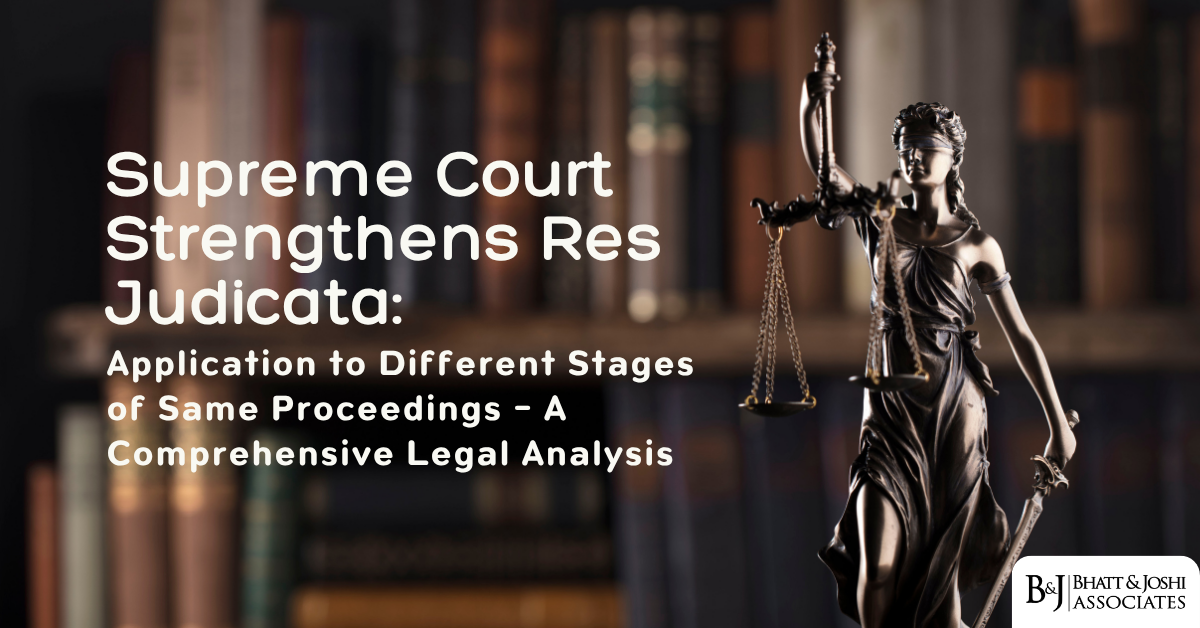Everything you need to know while travelling with gold.
CUSTOM GUIDELINES
Every passenger entering India has to pass through Customs check. The passenger has to declare the contents of his baggage in the prescribed Indian Customs Declaration Form At airports the passenger has the option of seeking clearance through the Green Channel or through the Red Channel subject to the nature of goods being carried.

GREEN AND RED CHANNELS
For the purpose of Customs clearance of arriving passengers, a two channel system has been adopted:-
- Green Channel for passengers not having any dutiable goods.
- Red Channel for passengers having dutiable goods. However, Green channel passengers must deposit the Customs portion of the disembarkation card to the Customs official at the exit gate before leaving the terminal.
Passengers walking through the Green Channel with dutiable/prohibited goods are liable to prosecution/ penalty and confiscation of goods.
Baggage rules 2016
The question is whether the Baggage Rules, 2016 have any application to the gold bangles worn by the Applicants also arises for consideration?
Rule 3:Passenger arriving from countries other than Nepal, Bhutan or Myanmar
An Indian resident or a foreigner residing in India or a tourist of Indian origin, not being an infant arriving from any country other than Nepal, Bhutan or Myanmar, shall be allowed clearance free of duty articles in his bona fide baggage, that is to say :-
- used personal effects and travel souvenirs; and
- articles other than those mentioned in Annexure-I, upto the value of fifty thousand rupees if these are carried on the person or in the accompanied baggage of the passenger.
Provided that a tourist of foreign origin, not being an infant, shall be allowed clearance free of duty articles in his bona fide baggage, that is to say,
- used personal effects and travel souvenirs; and
- articles other than those mentioned in Annexure- I, upto the value of fifteen thousand rupees if these are carried on the person or in the accompanied baggage of the passenger.
Provided further that where the passenger is an infant, only used personal effects shall be allowed duty free.
Explanation.- The free allowance of a passenger under this rule shall not be allowed to pool with the free allowance of any other passenger.”
Rule 5 Jewellery:
A passenger residing abroad for more than one year, on return to India, shall be allowed clearance free of duty in his bona fide baggage of jewellery upto a weight, of twenty grams with a value cap of fifty thousand rupees if brought by a gentleman passenger, or forty grams with a value cap of one lakh rupees if brought by a lady passenger.
ANNEXURE–I
(See rule 3, 4 and 6)
- Fire arms.
- Cartridges of fire arms exceeding 50.
- Cigarettes exceeding 100 sticks or cigars exceeding 25 or tobacco exceeding 125 gms.
- Alcoholic liquor or wines in excess of two litres.
- Gold or silver in any form other than ornaments.
- Flat Panel (Liquid Crystal Display/Light-Emitting Diode/ Plasma) television.”
PROVISIONS UNDER WHICH PASSENGERS MADE LIABLE.
Section 111. Confiscation of improperly imported goods, etc.—
The following goods brought from a place outside India shall be liable to confiscation:—
- any goods imported by sea or air which are unloaded or attempted to be unloaded at any place other than a customs port or customs airport appointed under clause (a) of section 7 for the unloading of such goods.
- any goods imported by land or inland water through any route other than a route specified in a notification issued under clause (c) of section 7 for the import of such goods.
- any dutiable or prohibited goods brought into any bay, gulf, creek or tidal river for the purpose of being landed at a place other than a customs port.
- any goods which are imported or attempted to be imported or are brought within the Indian customs waters for the purpose of being imported, contrary to any prohibition imposed by or under this Act or any other law for the time being in force.
- any dutiable or prohibited goods found concealed in any manner in any conveyance.
- any dutiable or prohibited goods required to be mentioned under the regulations in an import manifest or import report which are not so mentioned.
- any dutiable or prohibited goods which are unloaded from a conveyance in contravention of the provisions of section 32, other than goods inadvertently unloaded but included in the record kept under sub-section (2) of section 45.
- any dutiable or prohibited goods unloaded or attempted to be unloaded in contravention of the provisions of section 33 or section 34.
- any dutiable or prohibited goods found concealed in any manner in any package either before or after the unloading thereof.
- any dutiable or prohibited goods removed or attempted to be removed from a customs area or a warehouse without the permission of the proper officer or contrary to the terms of such permission.
- any dutiable or prohibited goods imported by land in respect of which the order permitting clearance of the goods required to be produced under section 109 is not produced or which do not correspond in any material particular with the specification contained therein.
- any dutiable or prohibited goods which are not included or are in excess of those included in the entry made under this Act, or in the case of baggage in the declaration made under section 77.
- any goods which do not correspond in respect of value or in any other particular] with the entry made under this Act or in the case of baggage with the declaration made under section 77 in respect thereof or in the case of goods under transhipment, with the declaration for transhipment referred to in the proviso to sub-section (1) of section 54.
- any dutiable or prohibited goods transisted with or without transhipment or attempted to be so transited in contravention of the provisions of Chapter VIII.
- any goods exempted, subject to any condition, from duty or any prohibition in respect of the import thereof under this Act or any other law for the time being in force, in respect of which the condition is not observed unless the non-observance of the condition was sanctioned by the proper officer
- any notified goods in relation to which any provisions of Chapter IVA or of any rule made under this Act for carrying out the purposes of that Chapter have been contravened.”
Section 77 Declaration by owner of baggage.—The owner of any baggage shall, for the purpose of clearing it, make a declaration of its contents to the proper officer.”
Section 112 Penalty for improper importation of goods, etc. —Any person—
- who, in relation to any goods, does or omits to do any act which act or omission would render such goods liable to confiscation under section 111, or abets the doing or omission of such an act, or
- who acquires possession of or is in any way concerned in carrying, removing, depositing, harbouring, keeping, concealing, selling or purchasing, or in any other manner dealing with any goods which he knows or has reason to believe are liable to confiscation under section 111, shall be liable.
- in the case of goods in respect of which any prohibition is in force under this Act or any other law for the time being in force, to a penalty ,not exceeding the value of the goods or five thousand rupees, whichever is the greater.
- in the case of dutiable goods, other than prohibited goods, to a penalty not exceeding the duty sought to be evaded on such goods or five thousand rupees, whichever is the greater;
- in the case of goods in respect of which the value stated in the entry made under this Act or in the case of baggage, in the declaration made under section 77 (in either case hereafter in this section referred to as the declared value) is higher than the value thereof, to a penalty not exceeding the difference between the declared value and the value thereof or five thousand rupees], whichever is the greater.
- in the case of goods falling both under clauses (i) and (iii), to a penalty 220 not exceeding the value of the goods or the difference between the declared value and the value thereof or five thousand rupees], whichever is the highest.
- in the case of goods falling both under clauses (ii) and (iii), to a penalty 221 not exceeding the duty sought to be evaded on such goods or the difference between the declared value and the value thereof or five thousand rupees,whichever is the highest.
NOW QUESTION ARISES WHETHER THERE IS NEED FOR ABSOLUTE CONFISCATION OR NOT?
The issue of absolute confiscation of goods and option of redemption thereof has been subjected to judicial interpretation in the past with rulings of the High Court and Tribunal on the same.
In case of : Commissioner Of Customs … vs Uma Shankar Verma Calcutta High Court:
Para 10
“…..
has held that if the goods are prohibited then the option is with the Customs Authority to confiscate without giving any option to pay fine in lieu thereof but when the goods are not prohibited then the Customs Authority has no other option but to allow grant of an option to the party to pay a fine in lieu of confiscation.
….”
In the case of :Kuber Casting Private Limited v. Commissioner of Commissioner of Customs, Amritsar-( Tribunal-Chandigarh):
Para 5
“….
As the goods impugned are not restricted goods, therefore, they can be released on payment of redemption fine and penalty, the Tribunal held that the redemption fine and penalty imposed on the appellant highly excessive and the goods cannot be held for confiscation on the charge of misdeclaration of Description.
….”
CONFISCATION OF GOLD NOT DECLARED
Central board of indirect tax and customs, vide their Letter No. 495/5/92-CUS-VI dated 10.5.93 have instructed that in case of non-declaration of gold even in respect of passengers otherwise eligible to bring gold should be absolutely confiscated.
In Shri Kamlesh Kumar In re 1993(67) ELT 1000, The Government of India in revision, it was held that such an option cannot be claimed as a right. This is because the condition regarding payment of duty in forign exchange is not satisfied (as goods were not declared) and hence these become ‘prohibited goods’. However, if a passenger is otherwise eligible to import gold, the option to pay redemption fine may be given considering all aspects.
CONFISCATION EVEN IF DECLARATION MADE
In R Karuppan v. R Namachivayam 1998 ElT 214
Hon’ble Madras High Court (Divisional Bench) , it was held that goods can be confiscated and penalty imposed even if the passenger had voluntarily declared the goods in his baggage.
GENERAL DEFENSE AVAILABLE
| Section 2(3): | “Section 2(3):includes unaccompanied baggage but does not include motor vehicles.” |
| Section 2(39): | “Section 2(39): “smuggling”, in relation to any goods, means any act or omission which will render such goods liable to confiscation under section 111 or section 113. |
| Section (33): | “Section (33):“prohibited goods” means any goods the import or export of which is subject to any prohibition under this Act or any other law for the time being in force but does not include any such goods in respect of which the conditions subject to which the goods are permitted to be imported or exported, have been complied with.
[While prohibited and restricted items may sound the same, there is an actual difference – prohibited items must never be sent in the post, while restricted items may be sent in the post, but restrictions will apply.]” |
Section 125. Option to pay fine in lieu of confiscation
- Whenever confiscation of any goods is authorised by this Act, the officer adjudging it may, in the case of any goods, the importation or exportation whereof is prohibited under this Act or under any other law for the time being in force, and shall, in the case of any other goods, give to the owner of the goods an option to pay in lieu of confiscation such fine as the said officer thinks fit:
Provided that, without prejudice to the provisions of the proviso to subsection (2) of Section 115, such fine shall not exceed the market price of the goods confiscated, less in the case of imported goods the duty chargeable therein.
- Where any fine in lieu of confiscation of goods is imposed under subsection (1), the owner of such goods or the person referred to in Sub-section (1), shall, in addition, be liable to any duty and charges payable in respect of such goods.”
In Collector of Customs, Bombay vs M/s Elephanata Oil and Industries Ltd.
“Hon’ble Supreme Court held that from the perusal of Section 112 and 125 of Customs Act 1962 it is apparent that both operate in different fields, namely, one requires imposition of penalty and other provides for confiscation of improperly imported goods section 111 provides that goods brought from the place outside India are liable to confiscation, discretion is given to the authority to impose penalty . Further Section 125 empowers confiscation of such goods and thereafter , confiscated goods vest in the Central Government. The Section further empowers the authority to give an option to the owner or the person from which goods are seized to pay a fine lieu of such confiscation for return of goods and the fine is also limited up to the market price of the goods. Therefore, levy of fine in lieu of confiscation is in addition to levy of penalty impossible under Section 112.”
CONCLUSION
in our respectful opinion the body of the passenger is not ‘baggage’, gold ornament worn by passengers need not be declared “Section 2(3): “baggage” includes unaccompanied baggage but does not include motor vehicles.” In vigneswaran Sethuraman v. Union Of India WP(C).No. 6281 of 2014 (I) Hon’ble High Court Of Kerala At Ernakulam stated that
that the body of a passenger is not ‘baggage’ Hence, gold ornaments worn by passengers need not to be declared. Baggage rules do not prohibit a foreign tourist entering into india from wearing a gold chain or other gold jewellery.. In Kartar Singh V. State of Punjab The Hon’ble Supreme Court of India has stated and held that. “It is the basic principle of legal jurisprudence that an enactment is void for vagueness if its prohibitions are not clearly defined. Vague laws offend several important values. It is insisted or emphasised that laws should give the person of ordinary intelligence a reasonable opportunity to know what is prohibited, so that he may act accordingly. Vague laws may trap the innocent by not providing fair warning. Such a law impermissibly delegates basic policy matters to policemen and also judges for resolution on an ad hoc and subjective basis, with the attendant dangers of arbitrary and discriminatory application. More so uncertain and undefined words deployed inevitably lead citizens to “steer far wider of the unlawful zone….than if the boundaries of the forbidden areas were clearly marked.”.
The Customs Act, 1962 or the Baggage Rules, 2016 do not stipulate that a foreign tourist or Indian Resident entering India cannot wear gold ornaments on his body. The Customs Act, 1962 and the Baggage Rules, 2016 do not provide sufficient warning to foreign tourists or Indian residents entering India that wearing a gold chain is prohibited. The Act and the Rules do not even remotely indicate that a foreign tourist or indian resident entering India cannot wear a gold chain on his person. In other words, foreign tourists entering India are in a boundless sea of uncertainty as to whether it is prohibited or not. As the Customs Act, 1962 and the rules framed thereunder contemplate confiscation and levy of penalty as also prosecution, the State has a duty to specify with a degree of certainty as to what is prohibited and what is not, without leaving it to the foreign tourist to guess what is prohibited and what is not.













